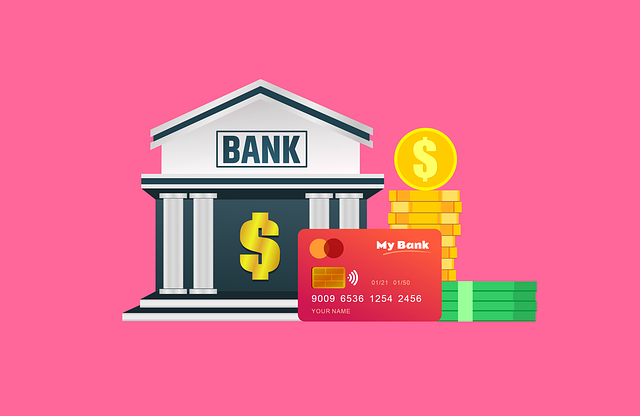What happens to credit card debt when you die is a question that may seem difficult to answer. The last thing you want to do is leave your heirs with unwanted liability from unpaid credit card debt.
We will unpack the issues at hand and offer the knowledge you need to protect yourself and your family.
Here is the first thing to know – your creditors can’t pursue credit card debt payments after your death. However, never think that death is the ultimate solution to credit card debt relief. There are lots of other ways to get rid of credit card debt.
Of the many unpleasant things, your survivors face after your death, dealing with your credit card debts and other dues may be among them. Before deciding whether to repay the debts, they may have to face annoying collection calls from creditors.
A 2016 Experian survey states that about 73% of people die with some combination of credit card debt, mortgage, personal loan, student loan, etc. About 68% of people die with credit card debt of more than $4500, on average.
If you are wondering what happens to your credit card debt after your death or whether your survivors will be liable for it, in most cases, the answer is ‘no.’ Usually, your assets are used to pay any debt you owe.
1. What To Do After a Cardholder’s Death
What if you are held responsible for repaying the deceased person’s credit card debt?
Here is what you need to do after the primary cardholder’s death.
- Stop Using the Card – First, do not incur more debt, even with an authorized user. It is considered fraud if you are not the primary user.
- Make a List of the Outstanding Credit Card Accounts – If you are the surviving spouse, gather all documents and make a list of the debts to pay off.
- Notify the Creditors and the Credit Bureaus – You will have to close the account if it was only in the deceased person’s name. If you are the joint account holder, you can use the card as a sole account holder. However, understand that the terms and conditions of the card may change depending on the card agreement. You need to inform the main three credit bureaus as well. To do so, supply a copy of the death certificate along with the SSN of the deceased person. If you are not the dead person’s spouse, you need to prove you’re the estate’s executor.
- Clear the Outstanding Credit Card Debt – Remember, one late payment will negatively reflect your credit report even if you do not want to use the card.
Therefore, if your name is on the card, make a timely payment if possible. If you can’t clear the entire amount, pay as much as you can. A negative listing will stay on your report for seven years and may make it difficult for you to take out a loan at reasonable terms and conditions in the future.
- Do Not Make the Payment If You Are an Authorized User – The creditor may hold you responsible for the entire outstanding balance if you make payment.
Consult an attorney if you live in a community property state.
2. How the Creditors Are Paid Back
After your death, your assets are used to repay your credit card debt. Then, the remaining assets are distributed to your heirs. The executor of your estate takes care of all these things.
You may think, who is the executor? If you have a will, then that is a person whom you have named in your will. If you do not choose, it can be a person appointed by the probate court.
An estate is whatever a person owns at the time of death. It includes assets along with the money in the bank. All these are collectively referred to as an estate.
3. What If You Owe More Than the Sum of Your Assets?
That means that your estate is insolvent. In this situation, your heirs may have to repay your credit card debt. However, it depends on several factors.
If you have a joint account holder, they may have to bear the credit card debt burden and repay it. When you apply jointly for a credit card, both of you agree to indemnify the outstanding credit card balance. The same principle applies to a co-borrower or a consignor. They are responsible for repaying the due balance.
However, an authorized user is not legally responsible for repaying the deceased person’s outstanding balance.
4. Assets You Cannot Use to Repay Creditors
Though assets are used to repay the deceased person’s credit card, there are some restrictions. Credit card debt is considered the lowest priority over other obligations, like secured loans backed by collateral.
State law determines which creditors get the highest priority if your estate cannot satisfy the remaining amount.
Here are a few assets which the executor can’t use to repay the debt:
- Life Insurance Proceeds
- Brokerage Accounts
- Retirement Accounts
- Assets in a Living Trust
5. FAQs:
So far, we have discussed the scenario in general terms. Now, let’s target some common questions and find the answers to help you understand the situation better.
i. What Debts Are Forgiven When You Die?
As mentioned, after a person dies, the assets and liabilities pass into their estate. The penalties are paid before the proceeds are given to the heirs.
We have already discussed what happens when a person’s debt is more than the estate covers.
Let us discuss some of the debts in detail:
- Secured Debt – If the heir inherits the home, then they have to repay the mortgage. If it isn’t paid, the bank can take the house to satisfy the remaining home loan amount from the sale proceeds.
- Unsecured Debt – With credit cards and personal loans, the outstanding balance is paid back from the assets in the estate. Usually, no one has to pay anything if there isn’t a cosigner.
ii. What Happens to Credit Card Debt When You Die With No Assets?
After someone’s death, the remaining debts are paid from the assets the person left behind. When the person has no support, or more specifically, no sufficient assets to cover the credit card debt, the heirs may have to repay the outstanding debt.
iii. Is the Wife Responsible for the Deceased Husband’s Credit Card Debt?
If you live in a community property state or your husband opens a credit card account after your marriage, it is automatically a joint account. Therefore, you will be responsible for paying off the debt amount.
It is better for you to repay the debt, if possible, to maintain a good credit standing.
Community property states are:
- California
- Arizona
- Louisiana
- Idaho
- Texas
- Washington
- Wisconsin
- New Mexico
- Nevada
- Alaska (The residents need to choose community property by signing an agreement)
However, the law may differ from one community property state to another.
iv. What To Do if an Account Is Reported As ‘Deceased’ Mistakenly?
Sometimes, creditors mistakenly report both the spouses as deceased. If that happens, make sure you correct the mistake. Send a notarized letter to the credit bureaus affirming your identity. It should include your full name, current mailing address, date of birth, SSN (Social Security Number), and a statement proving that you’re not deceased. There are also provisions to update these documents online.
v. Do I Have To Pay My Deceased Parents’ Credit Card Debt?
A child is not responsible for debt incurred by their parents unless they have cosigned the credit card agreement. If they are a consignor, the child will have to repay the outstanding debt amount. By doing so, the inherited amount will be less, but they will have to bear the loss.
vi. Can the Debt Collectors Harass the Deceased Person’s Relative for Paying Off Credit Card Debt?
The answer is ‘No.’ According to the FDCPA (Fair Collection Debt Practices Act), debt collectors cannot use unfair or deceptive practices to collect the remaining debt amount from any relative.
However, the collectors can contact the following people, during the mentioned hours, to discuss outstanding debts of the deceased person:
- Spouse
- Guardian
- Executor
- Administrator
- Parents of a minor child
A debt collector can also contact a person who can pay off the credit card debt from the deceased person’s estate.
Suppose anyone thinks that the debt collector is breaking the law. In that case, they can send a cease and desist letter to the collector, submit a complaint to the Consumer Financial Protection Bureau, report it to the FTC, or lodge a complaint with the state attorney general.
It is always better to consult an attorney who is familiar with estate laws. An experienced attorney can guide you through and answer your questions.
Finally, I would like to suggest this: why not get out of credit card debt before it becomes unpleasant? First, it is always better to avoid incurring debt. Swipe your card for an amount that you can repay every billing cycle. However, if you have to incur debt due to an emergency, opt for credit card debt relief options without wasting any time. The faster you start paying back debt, the lower interest you will incur. It will be much easier to get credit card debt relief and manage your finances in a better way.
What Options Do You Have To Get Out of Credit Card Debt?
One of the suitable options to get credit card debt relief is to opt for settlement when your debt amount is high. You can also consolidate your credit card debt if your primary concern is to manage multiple accounts, but you can repay debts in full. If you are overburdened with debt, you may have to file Chapter 7 or Chapter 13 bankruptcy.
You can at first contact a reputed counseling agency to discuss your debt relief options. They can analyze your financial situation and offer you a suitable credit card debt relief option.
Whatever option you choose, make sure you tackle your debt problems fast and manage your financial life the best way possible.
Thank you for reading this article. Please visit us at Senior Money Memos for more articles of interest.

